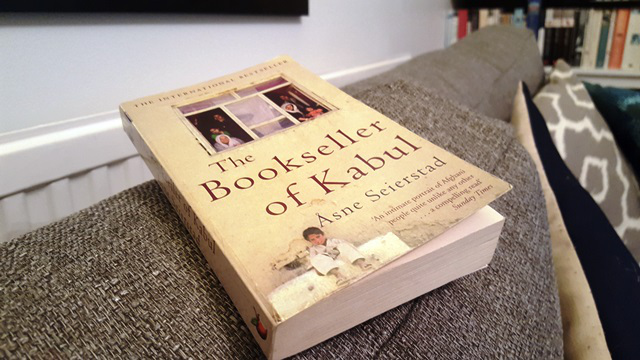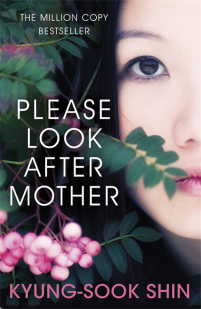
I am currently completely and utterly absorbed in Eleanor Catton’s book The Luminaries, which explains my recent short absence from the blog. I’ve been reading it for the past two weeks or so but am only just nearing the end of part 1 so I still have some way to go. It’s eye-wateringly complicated but luckily I’m so in love with it that I don’t really seem to mind that most of the time.
It’s a very different read to the last one I finished, The Bookseller of Kabul by Asne Seierstad. Seierstad is a Norwegian journalist and in September 2001 she entered Afghanistan to cover the ongoing crisis that followed the attacks on New York. In Kabul she met a successful bookseller, known as Sultan Khan in the book, and struck up enough of a friendship that she was able to convince him to allow her to live secretly amongst his family for four months as research for an upcoming book on the war and its impact on ordinary families. This is the result of that stay: a detailed portrait of Khan’s large family (with pseudonyms of course) as they pick out a life in cramped conditions amongst the country’s war ravaged capital. She begins her story with an account of Khan’s marriage to his second wife but goes on to devote a portion of her book to each member of the family in turn.
It’s for the Khan women that Seierstad clearly feels the most fondness and I like the fact that she deliberately tries to shine a spotlight on the experiences of those whom she feels are dominated and repressed by traditional Afghan culture. Khan is clearly a complex man and he and his sons don’t come out of the story quite so well; you get the distinct impression that Seierstad, as a western woman used to more freedom, must occasionally have found their behaviour frustrating. This is all explained in Seierstad’s simple and down to earth style which I really liked, particularly at those times when she provided brief explanations of the background to the war and life under successive Soviet, Taliban and pro-democratic governments. I don’t know a great deal about Afghanistan’s troubled past so I appreciated the uncomplicated writing style here.
Although she lived amongst the Khans for some time Seierstad never actually references herself in her story telling; instead she writes as a sort of omniscient narrator with a privileged insight into the private lives of those she’s observing. I’ve given this some thought now and I think that this is at the heart of my reservations about this book; it’s not obvious whether this is a piece of journalism or fiction and the fact that she never acknowledges her role makes you wonder how many of those secret thoughts and feelings she attributes to the Khan family are real and how many are imposed upon their subjects. Is it true, for example, that Khan’s younger sister hides love letters from her secret boyfriend in her room? And if so, why would Seierstad reveal that information in her book when she’s already gone to great lengths recounting truly horrifying stories of women who have been beaten or even killed by their families for the same behaviour? It makes no sense. And really, when I think about it, I’m not sure I believe that even spending four months fully immersed in a family from another culture would give you this sort of insight into who they are: only the Khans know that.
I think there’s a bit of me that wonders whether this is all a betrayal of the trust of the family who welcomed her into their home. And I also wonder whether I might have more faith in Seierstad if she was more open about how she came to have such an insight into this family, if instead of painting herself out of the picture and treating the Khans like characters in a novel she recounted real conversations and experiences that she shared with them. I can understand that her apparent absence from the storytelling might give the appearance of impartiality but I think more openness might add more credibility to her portrayal of the Khan family. Khan himself, and his relationships with those in family, are probably more nuanced than Seierstad gives them credit for and her tone could be criticised for being occasionally (and I’m sure unintentionally) condescending.
So on the whole it’s fair to say I have mixed feelings on this one. I explained all of this to a friend the other day and was told that I’m possibly overthinking things here and that I might be better off just enjoying The Bookseller of Kabul as it is without worrying so much about all the details. She’s right of course; there’s definitely no enjoyment to be had if you question the reliability of every narrator in every book you read. Having said that, I’ve changed my mind about using this book for my next stop on the Around the World in 80 Books tour. I’ll wait until I’ve read Khaled Hosseini’s book And The Mountains Echoed (still in the TBR pile) before I cross Afghanistan off the list entirely.
Advertisements Share this:

![[Music Release] Luhan drops new single “Catch Me When I Fall” after announcing he will be going on break](/ai/025/163/25163.jpg)


